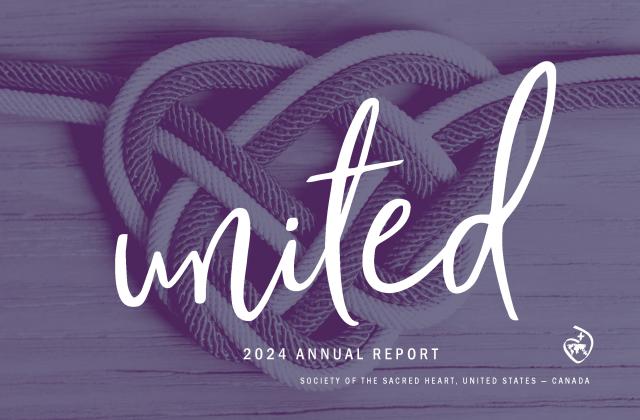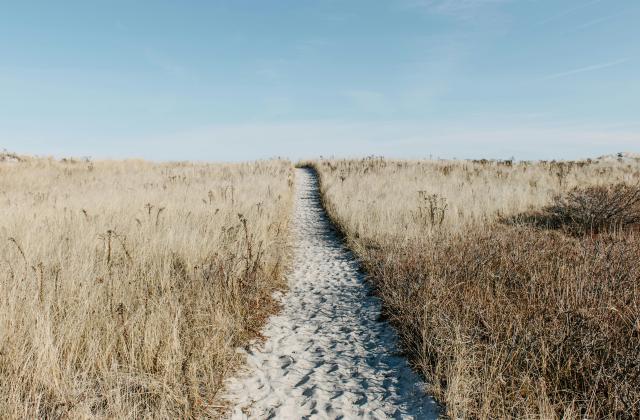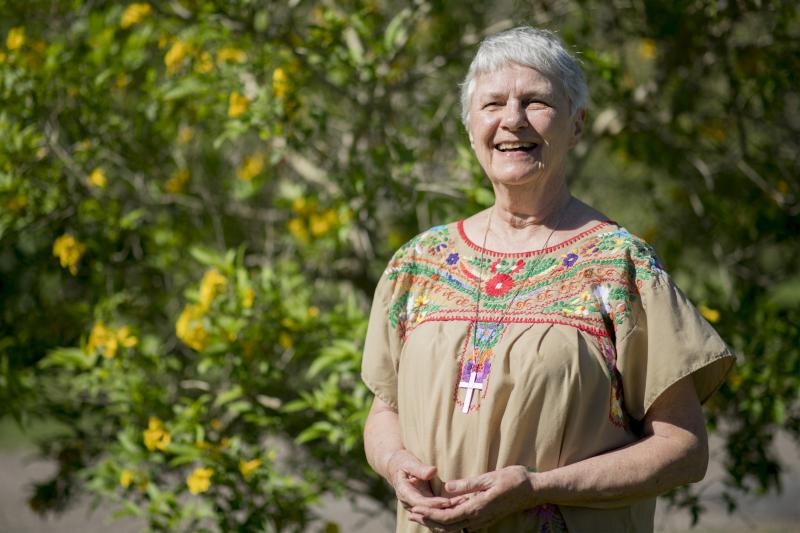
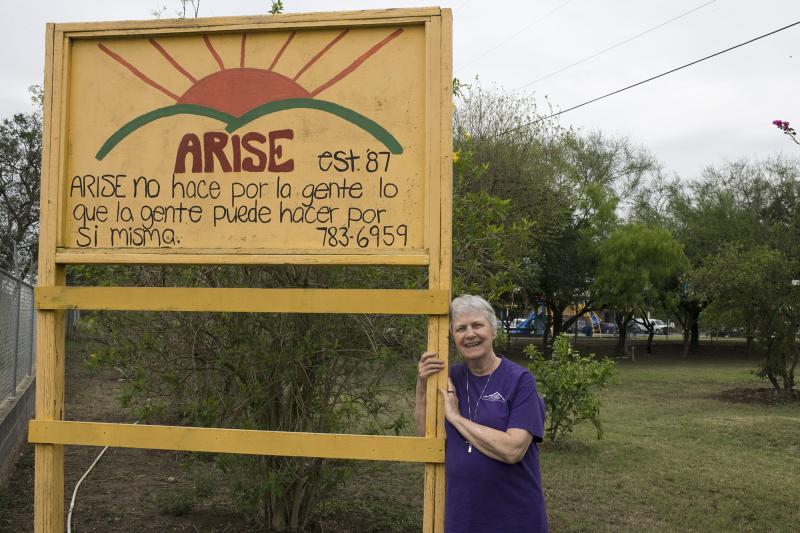
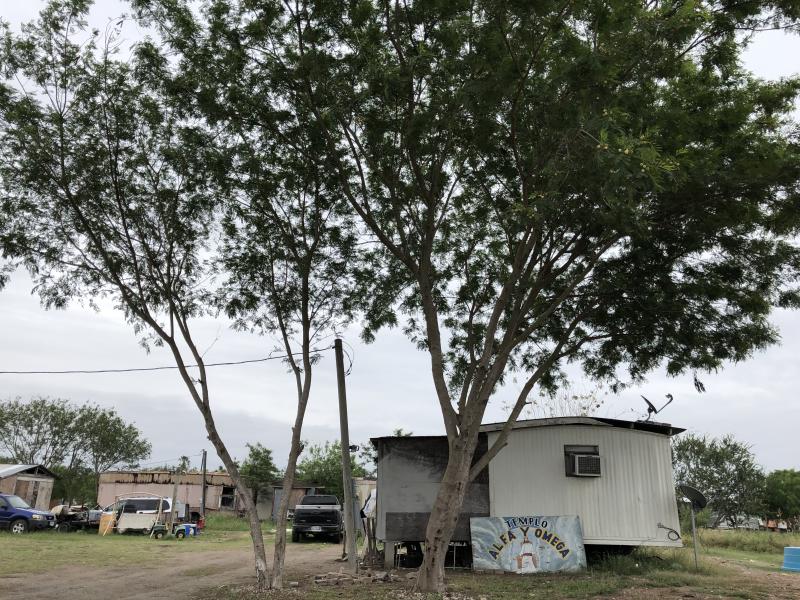
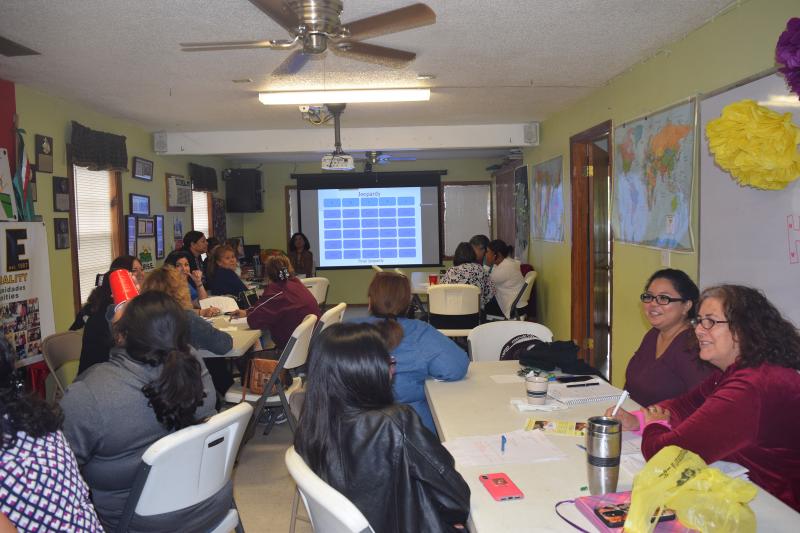
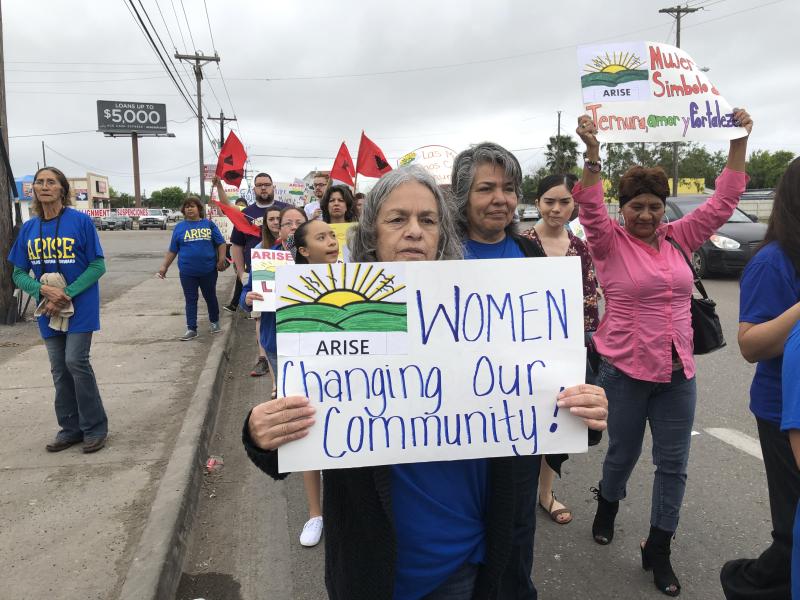
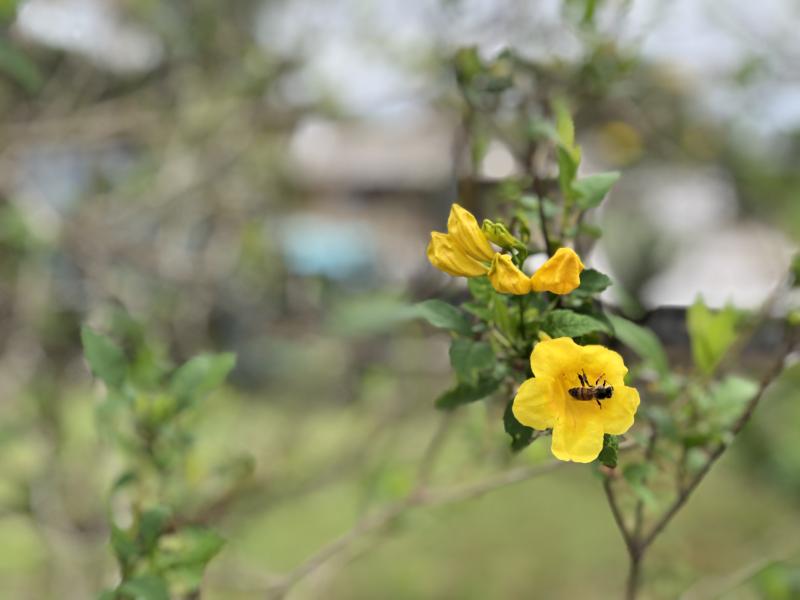
Driven by the Sacred Heart mission, at age 82, Rose Quilter, RSCJ, continues to be a lifelong learner who seeks to serve as a conduit of empowerment for those on the margins as she listens to the voices of immigrant families living in Texas on the United States-Mexico border.
The groundwork “It’s been such an adventure,” said Sister Quilter, reflecting on the journey that led her to the Rio Grande Valley and ARISE (A Resource in Serving Equality).
In 2013, after receiving permission from the provincial team, Sister Quilter moved to ARISE, a grass roots, community-based program in South Texas that works with colonia families to strengthen their communities. Colonias are unincorporated towns lacking basic infrastructure and public services, such as police and fire departments, effective sewage, potable water, etc.
“Suenos sin fronteras” or “Dreams without borders” (2013-16) was the Society’s first project at ARISE. The project, conceived by Marimer Cepeda, RSCJ, of the Mexico Province, was a collaboration in holistic health to serve immigrants on the United States side of the border.
Living in a trailer on the ARISE Support Center campus in Alamo, Texas, at the time, Sister Quilter offered classes in meditation and basic English to ARISE participants, mostly women and children. Concurrently, Sister Cepeda taught nine modules of herbal medicine and other traditional skills. The aim of the work was to increase well-being and reduce stress. Their students continue to practice and teach at ARISE.
A Resource in Serving Equality
ARISE, founded by Gerrie Naughton, RSM, in 1987, serves over 4,500 immigrant families, today, in five centers in Hidalgo County, primarily through education in leadership/spiritual formation of women and youth as well as through direct service and advocacy moving towards systemic change in the areas of environment/health, housing/infrastructure, immigration and civic engagement/voting.
On a weekly basis, families participate in popular education programs, which they request at the ARISE Centers. These classes include English as new language, tutoring, driver education, citizenship and leadership formation for young adults.
The cornerstone of ARISE spirituality is the Gospel of Luke, particularly as reflected in the call of Jesus (Luke 4:16), “God sent me to bring the good news to the poor…. ”
The longtime motto of ARISE is, “We do not do for the people what the people can do for themselves.” Other core values include hospitality; face-to-face interaction with families; a preference for service over perfection; and a process usual in popular education: See, decide, act, evaluate, celebrate.
“At ARISE, we learn from and celebrate everything, including our mistakes,” said Sister Quilter. “I see my work and the work of fellow RSCJ at ARISE, in collaboration with other women religious, such as the Sisters of Mercy who are its founders, and with women immigrant leaders as a sort of recovery of the Society’s commitment to education offered freely to women and children without resources.
“I think Sophie and Philippine would be very much at home here on the border,” she added.
Sister Quilter explained that one significant difference distinguishing education at ARISE from the Society’s “free schools for girls” model, is that they are now consciously aware that all education is mutual and that their students, whether 5 or 85, are educating those teaching.
“Learning structures are flexible and temporary, but the goals and objectives are clear: what you learn, you teach, for the sake of offering your gifts to the community – even one English word.”
ARISE has received donations from the Society’s Duchesne Fund grant program to make possible various projects every year since 2014. In addition to projects, these funds have also supported the ARISE ministries of seven RSCJ from the United States – Canada and Mexico Provinces.
Also, several RSCJ and Associates alike have participated in Border Witness programs at ARISE.
Connection
In 2016, after spending three years serving the “Suenos Sin Fronteras” program at ARISE, Sister Quilter received an invitation from Dr. Arturo Chavez of the Mexican American Catholic College (MACC) to help strengthen a 30-year relationship between ARISE and MACC via a long-distance learning program.
Since 2017, this program, called Puentec, allows professors at MACC, located in San Antonio, Texas, to live-stream classes to 30 ARISE participants. In addition, leaders from both communities have participated in spiritual formation through Advent scripture sharing.
“Both ‘sister organizations’ benefit from this collaboration,” said Sister Quilter. “ARISE keeps MACC in touch with the reality of the lives of immigrant families, and MACC offers professional language classes to ARISE leaders.”
The program is in its third semester of operation in spring 2019 and has been the recipient of a Duchesne Fund grant. Today, ARISE and MACC are looking for long-term funding for the Puentec program.
A new chapter
During a retreat in 2017, Sister Quilter began to discern her next move. Much to her surprise, she felt called to write a book. With years of experience and witness to the tough circumstances immigrant families face, and the resilience and triumph these communities have shown, she knew their stories needed to be shared.
Sister Quilter returned to the ARISE Support Center campus in early February 2019, and since has begun interviewing community leaders. She plans to conduct a multitude of interviews and start writing throughout the remainder of the year. She is hopeful to have the book edited and published by the end of 2020 with the help of and under the mentorship of ARISE leaders; the RSCJ publication committee; Imma De Stefanis, RSCJ; Reyna Gonzalez, RSCJ; Dr. Arturo Chavez; and other friends in the community.
“This is not a hopeless place,” she said. “This book is about discovering light and hope on the Texas-Mexico border.”
Sister Quilter intends to paint a picture of what these immigrants face, what they are doing today, and really what they’ve always been doing, she said.
“I am a witness, and I am honored to participate in a community that is as alive here as the early Christian communities were, and that’s what I want to convey – not by preaching but by telling the stories of people in their own words.”


